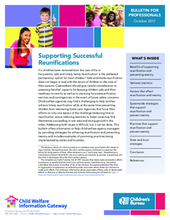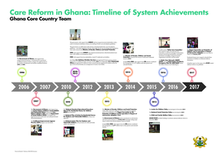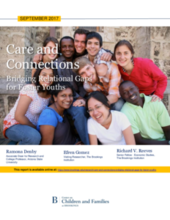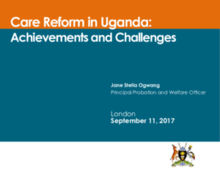Displaying 721 - 730 of 991
This video series from Better Care Network, in partnership with Child's i Foundation, highlights promising practices in children's care in Uganda.
This bulletin offers information to help US child welfare agency managers by providing strategies for achieving reunification and preventing reentry and includes examples of promising practices being implemented by States and localities.
The objective of this presentation is to highlight, through the presentation of a clinical case example, how a community-based social services agency, such as Northern Virginia Family Service (NVFS), responds to the psychosocial needs of unaccompanied minors and their families and addresses and mediates barriers to successful family reunification.
This rapid review from Coram Voice contributes to the understanding of care leavers’ experiences and is also the first stage in a project to develop a survey of care leavers’ subjective well-being, according to young people’s own evaluations of how they feel about their lives.
This infographic provides a historical timeline of the alternative care reform process in Ghana, marking key achievements in the establishment of policies, guidelines, procedures, and programs to improve the quality of care and protection for children without adequate family care.
This report explores the challenges of implementing and evaluating relationship-based interventions for young people with experience in the U.S. foster care system and presents recommendations for both practitioners and researchers for successful implementation and evaluation in the future.
This paper investigates young care leavers' expectations of their future after discharge from care.
In this webinar recording, 4Children and KIDSS share learning about how to prepare and plan, at the family and programmatic level, for exiting out of OVC programs.
This presentation by key actors in children's care reform in Ghana provides an overview of the demographic data of Ghana and offers a thorough review of the situation of children's care, and care reform efforts, in the country.
This presentation by the Principal Probation and Welfare Officer of Uganda outlines the basic demographic data of Uganda and provides an overview of the situation of children's care, and care reform efforts, in the country.






